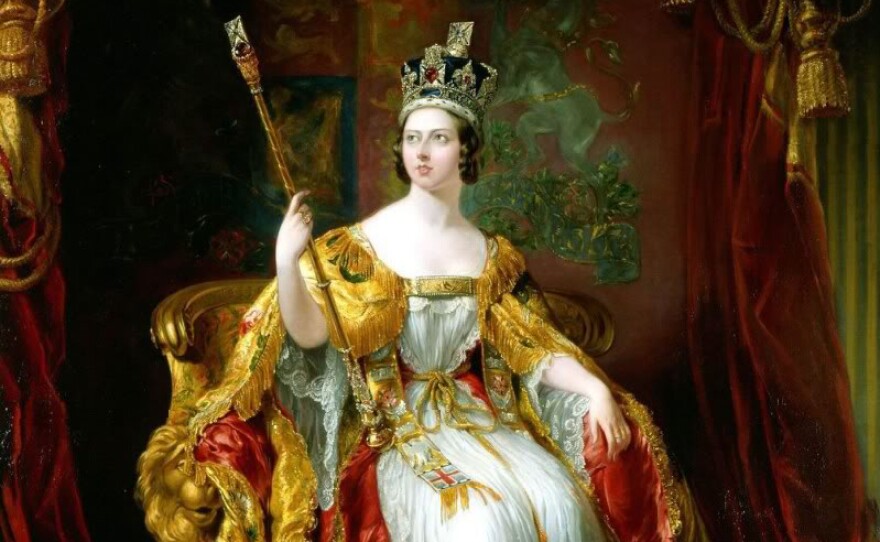At the time of Queen Victoria’s birth in 1819, England was an agrarian society. Within a few short decades, this small island nation would be transformed into an industrial superpower, with an empire spanning the globe. "Queen Victoria’s Empire" is both the story of this remarkable time and an engaging portrait of a queen who ruled over a fifth of the world’s population. It is the story of influential men who would shape a distinctively British imperialism: Gladstone, Disraeli, Livingstone, Rhodes and Prince Albert, Victoria’s husband.
Whether driven by profit, passion or noble deeds, these figures would fuel expansion unequaled in history, forever changing Britain and the lands it controlled. Personal accounts, lush re-enactments and evocative cinematography from former outposts of the Empire, including Africa and India, recount the dramatic clash of personalities and cultures that would drive Victoria’s remarkable 64-year reign.

"Engines Of Change" & "Passage To India" air Tuesday, August 6, 2013 at 8 p.m. - Beginning with the birth of Queen Victoria, “Engines Of Change” explores the changes brought to Britain by the industrial revolution. By the 1840s, urban migration has created overcrowding and extremes in pollution and poverty.
However, British subjects remain loyal to their queen. Prince Albert, Victoria’s husband, becomes a guiding force in the monarchy. Benjamin Disraeli and William Gladstone, political stars with starkly contrasting visions of empire, turn the nation’s attention abroad.
In the 1850s, one half of the world’s industrial goods are made in Britain, and steamships take British exports and families to far corners of the globe. In India, the clash of Victorian values and Indian culture explodes in the Great Mutiny and Cawnpore massacre of 1857. Appalled by the bloodshed, Victoria and Albert draft a proclamation to assume direct rule over India. “Passage to India” also reveals the devastating effects of the Crimean War, the first major war of Victoria’s reign, and the death of Prince Albert.
"The Moral Crusade" & "The Scramble for Africa" air Tuesday, August 13, 2013 at 8 p.m. - By 1861, Britain is the wealthiest and most powerful nation on earth. However, the death of Prince Albert weakens Victoria, and many of his political ideals fade from importance. David Livingstone’s explorations of the African interior captivate the British public. Disraeli and Gladstone battle for control of the British government and debate the course of the empire. The purchase of the Suez Canal solidifies British presence in the Middle East, igniting a stampede for the colonization of Africa.
In “The Scramble For Africa,” the Suez Canal is threatened by a holy war in the Sudan, and General Charles Gordon, killed by the rebels, becomes an “imperial martyr.” Cecil Rhodes prospects diamond deposits in southern Africa and asserts British control in the region. However, as Victoria celebrates her Diamond Jubilee, the empire is on the verge of its darkest hours. The Boer War leads to devastating losses and a reassessment of British purpose. Finally, in 1901, the death of Queen Victoria marks the end of an extraordinary era.





